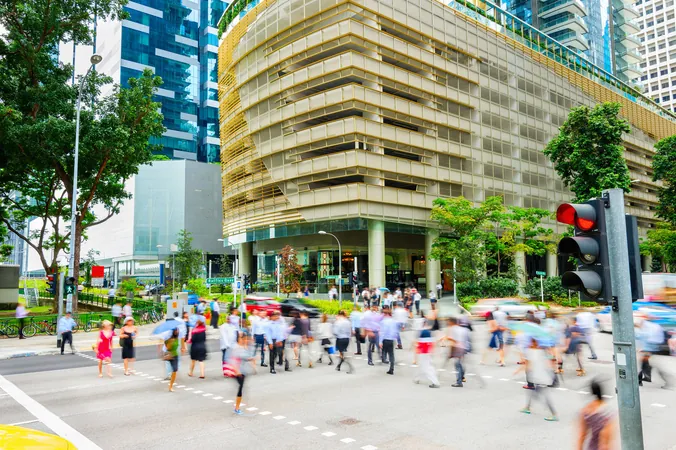
Singapore Workers Struggling with Hybrid Work Model: Are Employers Listening?
2024-09-20
Introduction
SINGAPORE: A recent global workplace survey by Unispace, titled "From Restrictions to Resilience," has unveiled a troubling trend – Singaporeans are the most dissatisfied globally with their hybrid work arrangements. This dissatisfaction stems mainly from a lack of "quiet" workspaces and flexibility that many workers crave in today’s fast-paced environment.
Employee vs. Employer Satisfaction
In contrast, Singaporean employers seem to be largely content with the current working conditions, leading to a significant gap between employee and employer satisfaction. While only 78% of Singaporean employees expressed satisfaction with hybrid work models, a staggering 94% of employers reported being pleased, a stark contrast that raises questions about whether improvements in workspace design could enhance employee retention and productivity.
Government Initiatives
Earlier this year, the Singapore government introduced the Tripartite Guidelines for Flexible Work Arrangements, set to take effect in December 2024. This initiative aims to bridge the gap between the expectations of employees and the traditional practices of employers. As Jianhan Qiu, Principal of Strategy (Asia) at Unispace Singapore, points out, "With the high dissatisfaction among Singapore workers, it’s not very surprising that the government has formalized flexible working arrangements this year."
The Call for Flexibility
Employees across Singapore are calling for flexible scheduling, with many hoping for offices that accommodate their need for quiet spaces where they can concentrate on work. Despite some social and collaborative advantages of in-office work, the survey indicates that Singaporean workers spend a significant 67% of their time at their desks in solitary work. Unfortunately, many find themselves confined to small booths meant for virtual meetings, isolating cubicles, or noisy, uninspiring environments that do little to foster productivity.
Flexible Working Hours and Four-Day Workweek
Furthermore, the survey highlighted that a remarkable 87% of Singaporean employees would be more enthusiastic about being in the office if they had the option for flexible start times. Adding to the conversation, 92% expressed interest in exploring a four-day workweek, a possibility that continues to gain traction in modern workplace discussions.
Generational Preferences
In terms of workspace preferences, the survey revealed an interesting generational split. Younger employees (ages 18 to 34) spend an average of 3.5 days in the office, viewing it as a collaborative space but favoring the benefits of remote work. Meanwhile, older employees (55+) utilize the office for leadership roles and focused tasks, averaging 4.3 days per week in the office.
Sense of Belonging
The findings further reveal a concerning sense of disconnect among Singaporean employees, with only 30% feeling a sense of belonging within their organizations compared to 40% globally. However, when workplaces align with the brand, culture, and values of their organizations, 71% of workers expressed a greater willingness to spend more time on-site.
Conclusion
Mr. Qiu emphasized the importance of flexible spaces in attracting Generation Z, who will comprise a significant portion of the workforce in the coming years. With this demographic expected to represent about 27% of the workforce in the APAC region by 2025, employers must rethink their workplace strategies to meet the evolving expectations of their younger employees.
As firms ponder these challenges, the urgency to adapt is clear. Singaporean employees are not just asking for a return to the office; they demand an environment that fosters collaboration, productivity, and a sense of belonging. Will employers step up to the plate and invest in the necessary changes to attract and retain top talent in this ever-evolving work landscape? Only time will tell.


 Brasil (PT)
Brasil (PT)
 Canada (EN)
Canada (EN)
 Chile (ES)
Chile (ES)
 España (ES)
España (ES)
 France (FR)
France (FR)
 Hong Kong (EN)
Hong Kong (EN)
 Italia (IT)
Italia (IT)
 日本 (JA)
日本 (JA)
 Magyarország (HU)
Magyarország (HU)
 Norge (NO)
Norge (NO)
 Polska (PL)
Polska (PL)
 Schweiz (DE)
Schweiz (DE)
 Singapore (EN)
Singapore (EN)
 Sverige (SV)
Sverige (SV)
 Suomi (FI)
Suomi (FI)
 Türkiye (TR)
Türkiye (TR)